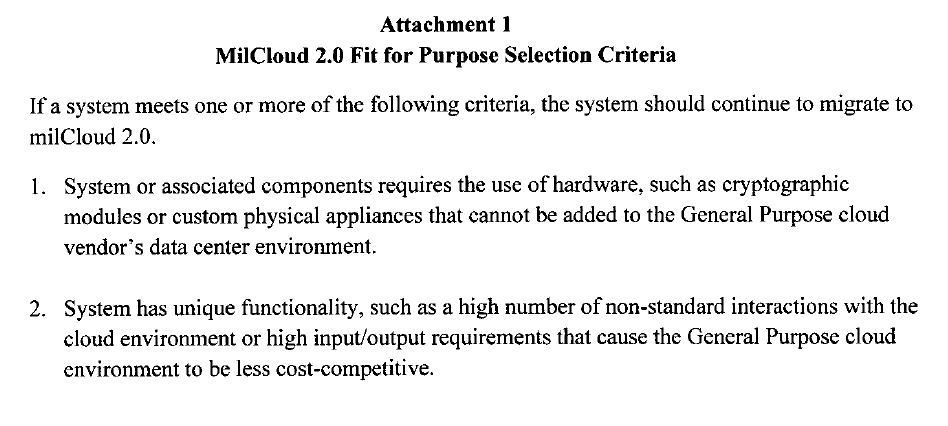

DoD's general purpose cloud is coming later than expected.
Best listening experience is on Chrome, Firefox or Safari. Subscribe to Federal Drive’s daily audio interviews on Apple Podcasts or PodcastOne.
The Defense Department needs more time to pick the winner of the $10 billion JEDI contract.
DoD Chief Information Officer Dana Deasy told reporters Tuesday that the award of the Joint Enterprise Defense Infrastructure (JEDI) contract, which is down to two bidders, Amazon Web Services (AWS) and Microsoft, will not happen for about a month after the Pentagon initially predicted it would make a decision.
The award will come well after the U.S. Court of Federal Claims is expected to decide on Oracle’s protest about DoD’s JEDI solicitation. The court’s decision is expected to come shortly after the July 10 oral arguments.
“The anticipated award date for the JEDI contract is late August,” Deasy said Tuesday in Washington during a Defense Writers Group event. “We anticipate a court decision prior to that time. The DOD will comply with the court’s decision. While the acquisition and litigation processes are proceeding independently the JEDI implementation will be subject to the determination of the court.”
Even though the winner of the contract is still unclear, DoD is moving forward as if JEDI will be awarded successfully without any further snags.
Deasy issued a memo on May 20, obtained by Federal News Network, directing the fourth estate to identify candidate applications to migrate to the JEDI cloud. The fourth estate refers to agencies that do not fall under the military services, but are still part of the defense community.
The memo asks those agencies for JEDI hosting recommendations and detailed selection criteria for both JEDI and the MilCloud 2.0 platform.

Even though Deasy likely has received those recommendations, he was tight-lipped on what fourth estate projects might transition to the JEDI cloud first.
The memo, Deasy writes, is a way of getting agencies off of their own individualized clouds.
“While many fourth estate cloud migrations are underway, the current fourth estate migration approach needs to better reflect the overarching DoD cloud strategy and the upcoming availability of JEDI,” the memo states.
Deasy said DoD will not wait for the agencies to fall into line and hold onto their old clouds.
“You know the expression ‘build it and they will come?’” Deasy said. “This is not the case here. You have to remember there are a bunch of clouds already inside the Department of Defense. Everybody was out standing up their own cloud.”
That will not work in the future, Deasy said.
“Think about artificial intelligence and the importance of how we are going to extract data in a common way. Siloed clouds are highly problematic,” he said. “People are starting to see that to be able to fight in a multi-domain environment; there’s going to be a more and more highly dependent interoperability requirement here.”
The memo also explicitly prohibits agencies from entering into any new cloud contracts.
He did, however, layout the logic behind the memo.
“Now that we are getting closer, it’s the logical time to sit down with the various services and start to describe what we believe a general cloud environment will start to look like, and more importantly for them to start thinking about, what activity set they will have coming up this fall and going into next year that might be a good candidate,” Deasy said. “Part of the problem here is until we complete the selection of who the partner will be — that then leads to what the general-purpose cloud will start to look like. Then how do we start to train people to leverage and take advantage of that?”
Deasy said right now he is going out and educating people on the construct, but then they will have to wait until the contract is done to understand what they will be getting technically.
The DoD CIO office is working on an awareness campaign to tell employees and agencies that JEDI is coming and explaining that it’s now time to think, not only about the apps that will go on the cloud, but what it means to have the general purpose cloud go online.
Deasy said that campaign has reached down to the combatant command and command level.
“In the last few months we have had, what I call, a series of cloud-awareness sessions with several of the combatant commands, as well as various subcomponents of various services to create awareness and education,” Deasy said. “There is a significant amount of pent up demand just waiting to use the capability once it comes online.”
He said one of those pent up areas is U.S. Transportation Command, which has next-generation apps it wants to deploy. Deasey said TRANSCOM would suffer if there were further snags in JEDI.
Last year, the Government Accountability Office upheld a protest of a nearly $1 billion cloud contract for TRANSCOM.
While JEDI is still in the works, Deasy wants the fourth estate agencies to continue efforts to move systems and applications to the MilCloud 2.0 platform hosted by the Defense Information Systems Agency.
Deasy’s May 20 memo also asked fourth estate agencies to identify candidate applications to move over to MilCloud 2.0. He said the Defense agencies should continue all non-JEDI migration activities, including those going to a commercial cloud. At the same time, however, Deasy wants the agencies to evaluate whether the JEDI platform will meet their needs too.
The memo lists more than 75 systems already scheduled to go to MilCloud 2.0 from the fourth estate agencies, as well as 30 data centers expected to close down.
John Weiler, CEO at IT-Acquisition Advisory Council (IT-AAC), told Federal News Network that the memo in some ways reverses a May 2018 guidance from the CIO directing the fourth estate to implement MilCloud 2.0.
“The MilCloud Selection criteria is VERY narrow, suggesting that it is only for those systems that cannot use commercial cloud,” he said. “Worse, the overall tone suggests that MilCloud is NOT a commercial offering. But MilCloud is based on commercial cloud offerings. It should not be only for those program that require specialized hardware and software as suggested in the memo. MilCloud already supports DOD CIO’s multi-cloud strategy and is under continuous improvement like any other cloud.”
Weiler said the delay in moving to MilCloud or other commercial offerings puts many fourth estate systems at risk because they are insecure and costly to maintain.
Copyright © 2024 Federal News Network. All rights reserved. This website is not intended for users located within the European Economic Area.
Scott Maucione is a defense reporter for Federal News Network and reports on human capital, workforce and the Defense Department at-large.
Follow @smaucioneWFED

